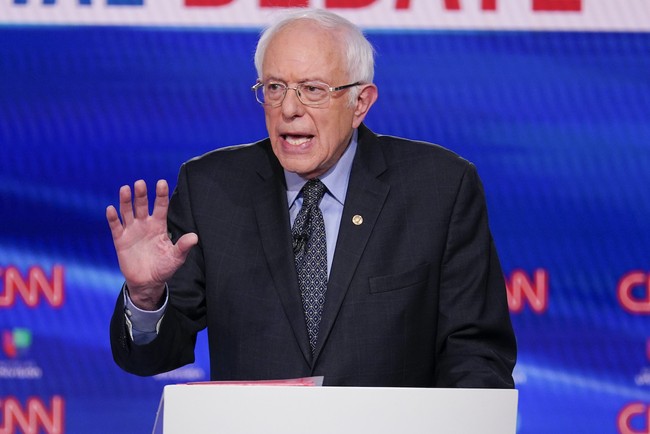The campaigns of multiple Senate hopefuls backed by Sen. Bernie Sanders are now dealing with past statements and actions resurfacing, from social media posts and offensive tattoos to deleted tweets and controversial policy language, and those issues are reshaping how voters and opponents are responding.
The Maine race kicked off with promise but quickly soured after new entrants and a trove of online posts emerged. Graham Platner faced scrutiny for Reddit posts in which he boasted about being a communist and attacked law enforcement as “b**tards.” Reports also detailed racially insensitive commentary about tipping, victim-shaming toward sexual assault survivors, and a Nazi-themed chest tattoo he later covered.
Sanders has publicly defended Platner through the turbulence, offering context for the candidate’s past behavior. He said, “He went through a dark period” after serving four tours of duty and “has apologized for the stupid remarks, the hurtful remarks that he has made.” That backing has kept the controversy in the headlines and exposed a larger pattern within the camp of progressive endorsements.
Meanwhile in Michigan, another Sanders-backed candidate is confronting his own archive of problematic content. Abdul El-Sayed has deleted thousands of past social posts, a move that has drawn attention because some of the removed material championed “defund the police” rhetoric and criticized policing structures. Those deletions are now cited by opponents as evidence of political maneuvering rather than genuine evolution of views.
Abdul El-Sayed, a progressive Democrat running for the US Senate in Michigan, has quietly erased thousands of old social media posts — including a dozen tweets that championed the “defund the police” movement, described police as “standing armies,” and urged cities to divert money from law enforcement to social services.
The former Detroit health director deleted his entire X history sometime before launching his Senate campaign in April, a move that highlights how progressive Democrats once aligned with “defund” policies are now distancing themselves from a slogan that remains deeply unpopular with voters.
[…]
El-Sayed’s deleted tweets are still viewable on the Internet Archive’s Wayback Machine, which archives old webpages and posts, and show his tweets were still on his page as late as 2023.
The blockquoted material highlights how past advocacy can be preserved even after deletions, and opponents are using those archived posts to question sincerity. El-Sayed’s public remarks during the 2020 unrest about reallocating funds from policing to social services are being replayed in campaign messaging. Those comments were framed at the time as public health policy, but today they read differently to many voters concerned about law and order.
He continued [in July 2020], “When we talk about the question of quote-un-quote ‘defunding the police,’ it’s a question of asking, how do we right-size government away from the racist ideologies that have led us to investing in war material for policing rather than public health for children?”
“Defunding the police is disinvesting in the means of incarcerating someone or killing them on the streets and investing more in the means of educating and empowering and engaging communities,” El-Sayed said in another 2020 local press interview.
There are additional flashpoints beyond policing. A fundraising message tied to a sensitive anniversary raised questions because it did not explicitly mention a violent terrorist attack against civilians, and critics flagged that omission as tone-deaf. That email is now part of the campaign narrative opponents use to question judgment and priorities.
The NRSC has used these developments to draw contrasts, tagging El-Sayed with a derogatory nickname to reinforce their critique. Meanwhile, Sanders’ endorsement of El-Sayed emphasized a broader case against perceived authoritarian threats and framed his pick as a defender of democratic values. That defense keeps both campaigns and critics locked in a battle over how to evaluate past statements versus present promises.
Endorsements from other progressive figures have also attracted scrutiny because of their own records, and those associations are being leveraged in primary messaging. Competing Democrats in Michigan include established members of Congress and state legislators who are positioning themselves as more moderate or electable in a general election. The primary calendar gives candidates time to respond, but these controversies set an early tone that could shape debates and donor behavior.
The broader lesson from these contested endorsements is clear: past online activity, tattoos, and public remarks rarely stay buried, and voters are judging candidates on both history and present-day accountability. Campaigns now face the task of reconciling past statements with current platforms while opponents use every available record to craft a persuasive attack line. As the primary season unfolds, those contrast narratives are likely to intensify and force clearer choices for voters.





Add comment